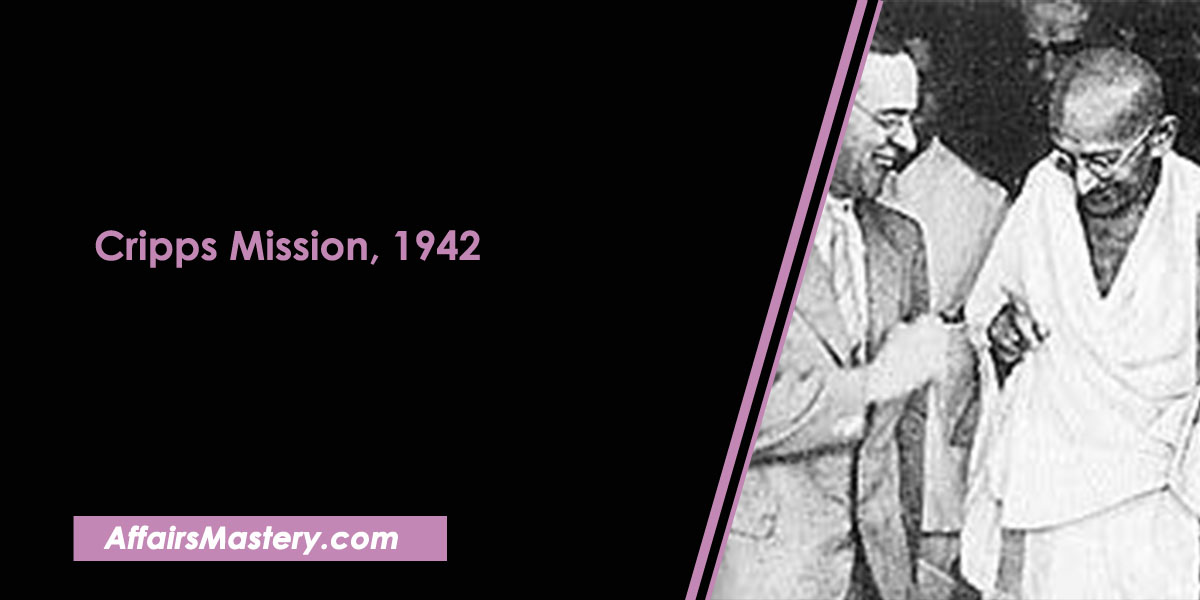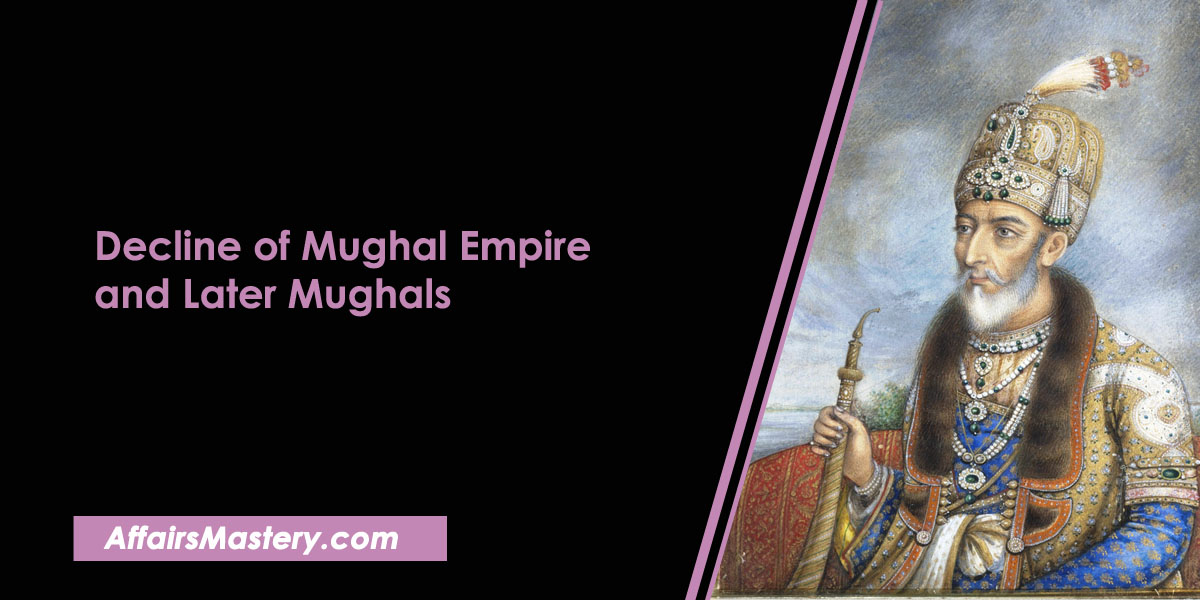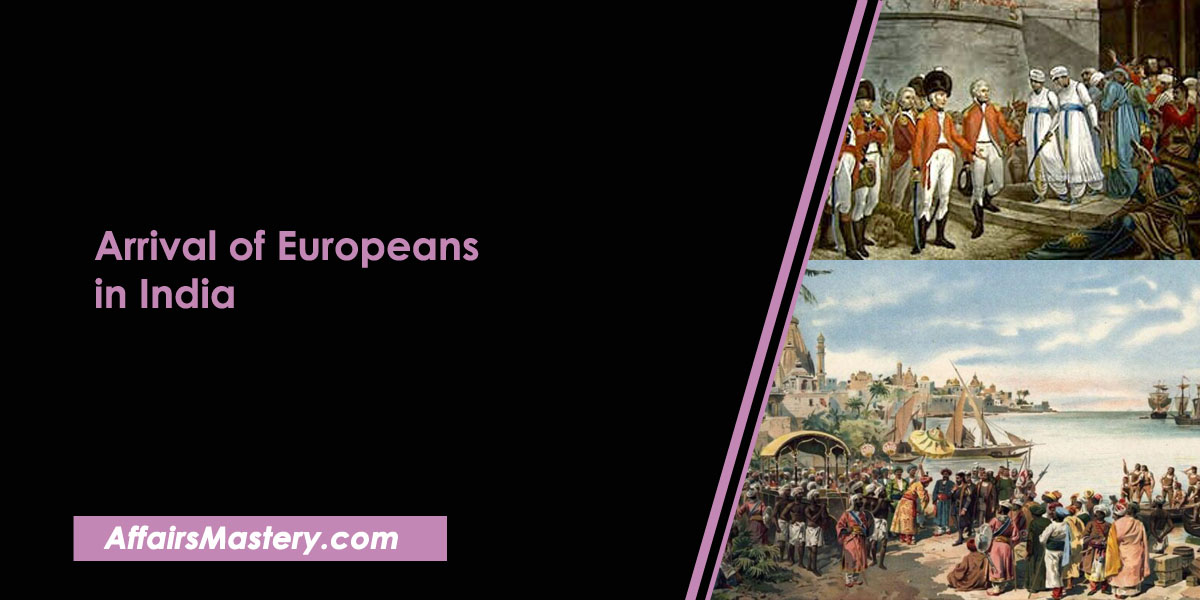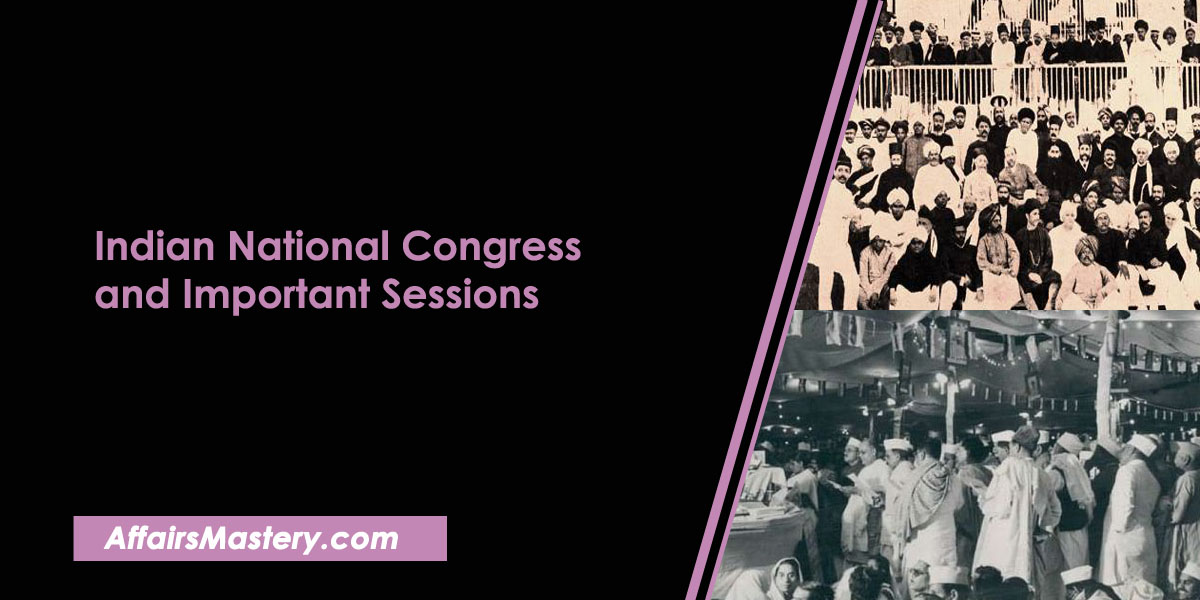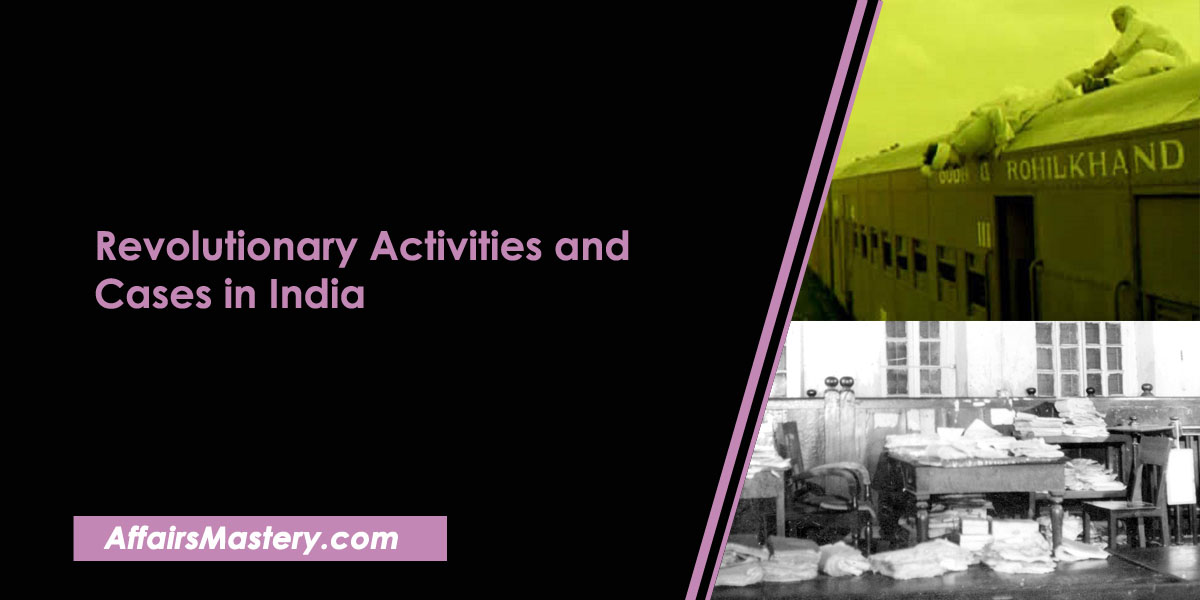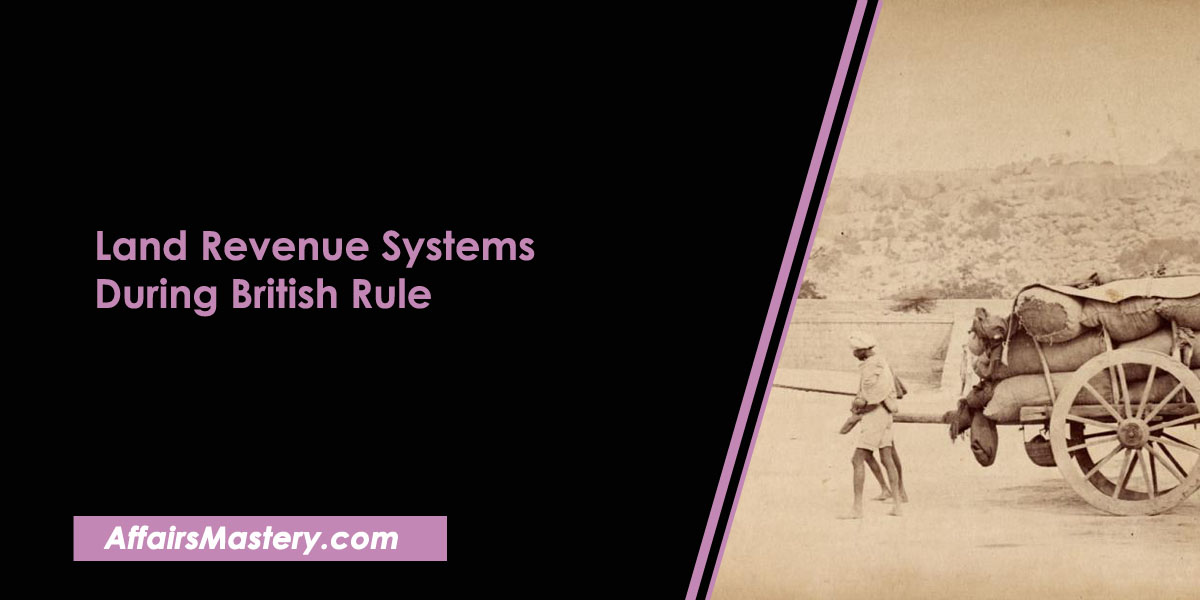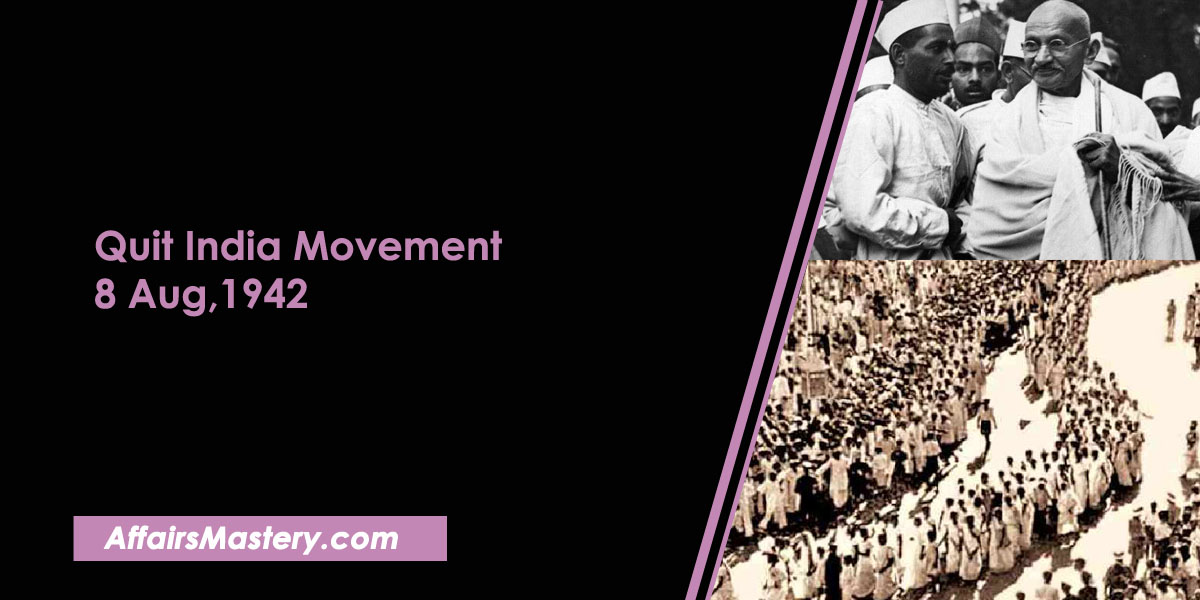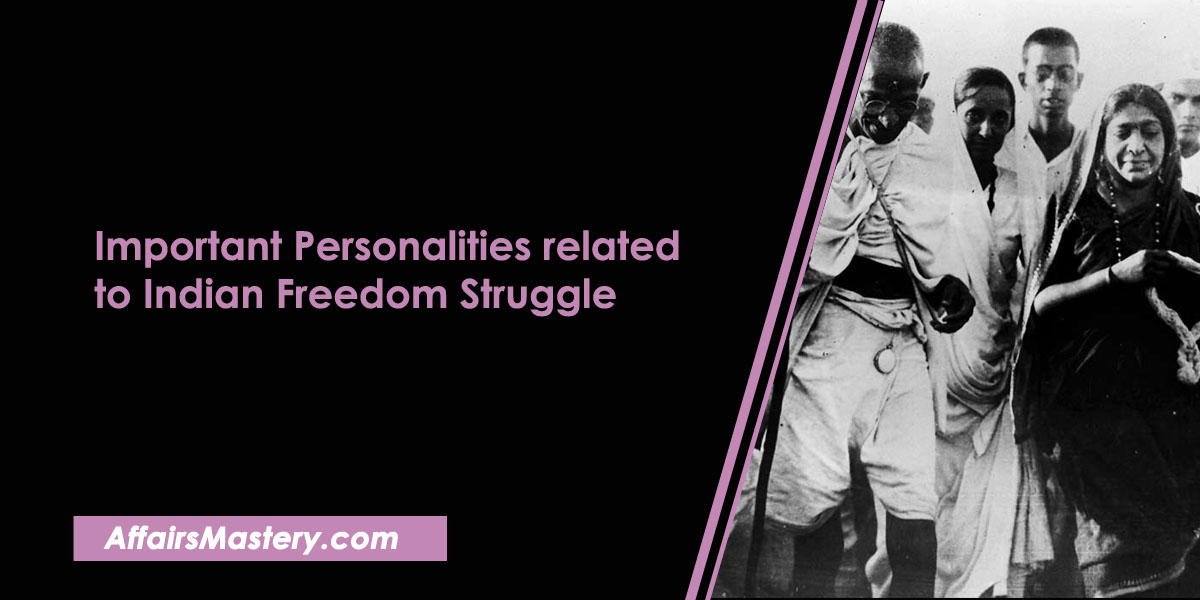Cripps Mission 1942 – Background, About, Reactions (Important Short Notes)
Cripps Mission 1942. Cripps Proposal 1942. The Cripps Mission was established by the British government and sent to India in March 1942, led by Sir Richard Stafford Cripps. Its primary purpose was to negotiate Indian cooperation for the United Kingdom’s war efforts during World War 2. Important Short note for various exams.
From the perspective of an examination like Civil services, State exams, SSC, Banking, Railways and any other One Day exam, all the necessary facts and information are listed below.
Background
- On June 22, 1941, under Operation Barbarossa, the German Army launched an unexpected attack on Russia which later became one of the allies in World War II.
- In the East, Japan made a surprise attack on Pearl Harbour and took down British forces in Malaya, Singapore and Burma with great speed. The threat to India was immense as it posed an imminent danger from further Japanese advances.
- After the Pearl Harbour, the US also joined the Second World War with the sole objective to punish Japan, for which the US wanted Naval bases closer to Japan, particularly in India.
- US President called upon Churchill, the contemporary British Prime Minister to resolve the Indian problem without which the war against Japan cannot be pushed vigorously.
- Sir Stafford Cripps, a member of the British Cabinet was dispatched to India on March 22 1942 with a draft declaration, on the basis of which he was to negotiate with the Indian leaders.
- Stafford was a left-wing Laborite, the leader of the House of Commons and a member of the British War Cabinet who had actively supported the Indian national movement.
About
- On March 30, 1942, the Cripps Proposal was unveiled to address India’s demand for political autonomy and independence from British colonial rule.
- Proposal comprises of these following points, An Indian Union with a dominion status would be set up; it would be free to decide its relations with the Commonwealth and free to participate in the United Nations and other international bodies.
- After the war was over, a Constituent Assembly would be formed to create and ratify a new Constitution that could redefine democracy in this land.
- Members of the Assembly would be partly elected by the provincial assemblies through proportional representation and partly nominated by the princes.
- British Government would accept the new constitution subject to two conditions. One, any province not willing to join the Union could have a separate constitution and form a separate Union, and that the new constitution making body and the British Government would negotiate a treaty to affect the transfer of power and to safeguard racial and religious minorities.
- Defense would be in the hand of British Government and the Governor-General’s powers would remain intact.
- If any part of India are not ready to adhere to the Constitution, they would be free to do so and such conditions, it could frame its own Constitution and given the same status as the rest of India.
- The proposal gave assurance of independence to the provincial states and implicitly conceded to what the League was demanding for which was separation and founding of a new nation called Pakistan.
Reactions
- Cripps Mission post War proposals were made at a time when the future of World War as well as that of British was uncertain. Consequently, Gandhi called, “post dated cheque on a crashing bank“.
- The proposals offered by the Congress seemed to be far from meeting their demands, namely that of full independence immediately and at least partial autonomy after the War.
- An indirect threat to the Unity of India by conceding the League’s demands for Pakistan.
- When League discovered that all the political players in India refused this proposed idea, they decided to also reject it on various disparate grounds.
- Another important reason why this proposal failed was because of efforts of the Viceroy and Secretary of State for India to sabotage the mission, which were guided by Churchill, who also did not want the mission to succeed and merely wanted to use it as propaganda in front of the Allies.
If you find our content helpful and interesting, please consider joining us on Telegram @affairsmastery_official to show your support. We would really appreciate it!
Related articles
- Important Battles in Indian History 2023-24
- Important treaties in Indian history 2023-24
- List of Foreign Travellers who came to India
- List of Governor General of India and Viceroy of India
- Robert Clive – Important Short Notes for Exams 2023-24
- Warren Hastings – Important Short Notes for Exams 2023-24
- Lord William Bentinck – Important Short Notes for Exams 2023-24
- Lord Canning – Important Short Notes for Exams 2023-24
- Lord Mountbatten – Important Short Notes for Exams 2023-24
- C. Rajagopalachari – Important Short Notes for Exams 2023-24
- Lord Wavell – Important Short Notes for Exams 2023-24
- Lord Linlithgow – Important Short Notes for Exams 2023-24
- Lord Willingdon – Important Short Notes for Exams 2023-24
- Non Cooperation Movement (1919-1922)
- Important Personalities related to Social Movements of India
- List of Important Books on Revolt of 1857 and their Author
- Important Leaders of 1857 Revolt and their places
- Constituent Assembly of India and its Composition: Important Short Notes
- Important Tribal Movements in India
- Direct Action Day 1946: Important Short Notes for Exams
- Interim Government of India, 1946 and its members
- Important Socio Religious Reform Movements in India – Short Notes
- Khilafat Movement (1919-1924) – Important Short Notes for exams
- Lucknow Pact, 1916 – About, Features, Outcome (Important Short Notes)
- C R Formula or Rajaji Formula, 1944 – About, Main Points (Important Short Notes)
- Wavell Plan, 1945 – About, Main Points (Important Short Notes)
